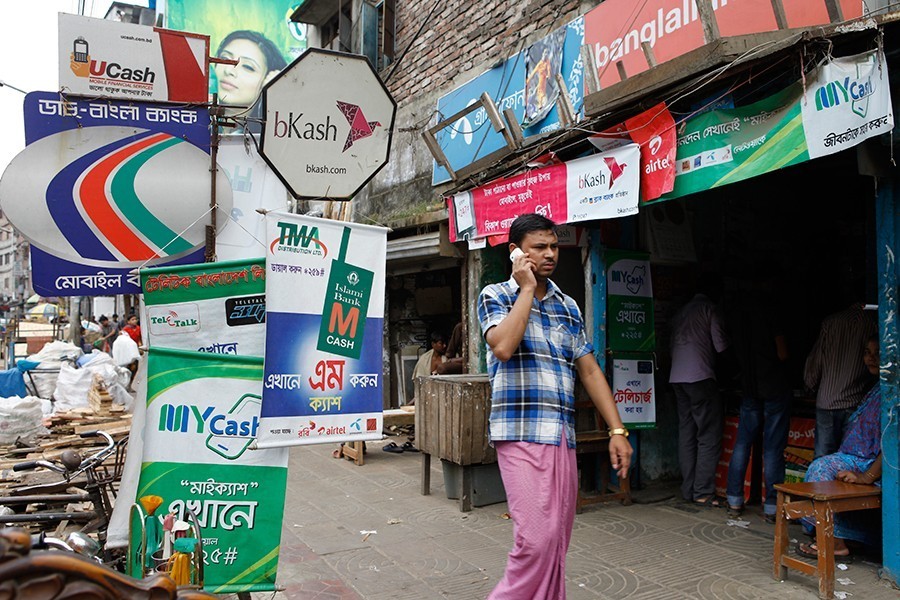An estimated 30-million new MFS accounts and increasing digital payment services during the pandemic proved that mobile financial services have successfully passed "corona exam" in Bangladesh.
Former central bank governor Dr Atiur Rahman said this at a seminar, co-hosted by his private think-tank Unnayan Shamannay and Knowledge Alliance on Saturday, as the chief guest.
"We witnessed that during the pandemic, from megacities to remote char areas, low-income people have benefitted from MFS. So, we may say that MFSs have passed the corona exam."

When Bangladesh Bank initiated MFS a decade ago, Unnayan Shamannay chairman Dr Rahman said, it focused on low-cost and accessible digital financial services to low-income people living in remote areas.
New MFS products like digital nano-loan and small savings are coming up, he says, suggesting that availability of these services for marginal people of char areas be ensured.
The findings of a survey on MFS styled 'A Decade of MFS: Post-pandemic Field-level Realities' were disseminated in Khondoker Ibrahim Khaled seminar room.
However, Khondoker Sakhawat Ali, founder of Knowledge Alliance, says almost 60 million out of an estimated 110 million MFS accounts are inactive in the country.
The recipients of social safety-net programmes cannot choose MFS accounts to receive money, rather state agencies and ministries choose MFS providers for them in non-compliance with the rules, he adds.
"This is one of the reasons for rising inactive accounts," observes Mr Ali while presenting the study.
Most of those accounts were opened to receive safety-net money, but state agencies later changed the accounts, he further said.
Mr Ali suggests that the government and MFS providers take initiatives to resume those inactive accounts.
The MFS sector lacks a level-playing field and the central bank must act to ensure it.
Policy Research Institute executive director Dr Ahsan H Mansur says alongside sending and receiving money, other uses of MFS need to be increased.
He believes it is possible to advance towards 'cashless society' through effective utilisation of MFS.
Results from the field survey reveal that low-income char customers have opened MFS accounts in great numbers amid the pandemic.
This was mainly due to the government decision to send cash transfers via MFS. Consequently, char customers' confidence has increased to a significant extent.
Char people rely mainly on MFS agents to understand the technicalities of mobile financial services.
However, reliance on agents in megacities and at district/sub-district level is gradually decreasing as customers there are using apps themselves.


